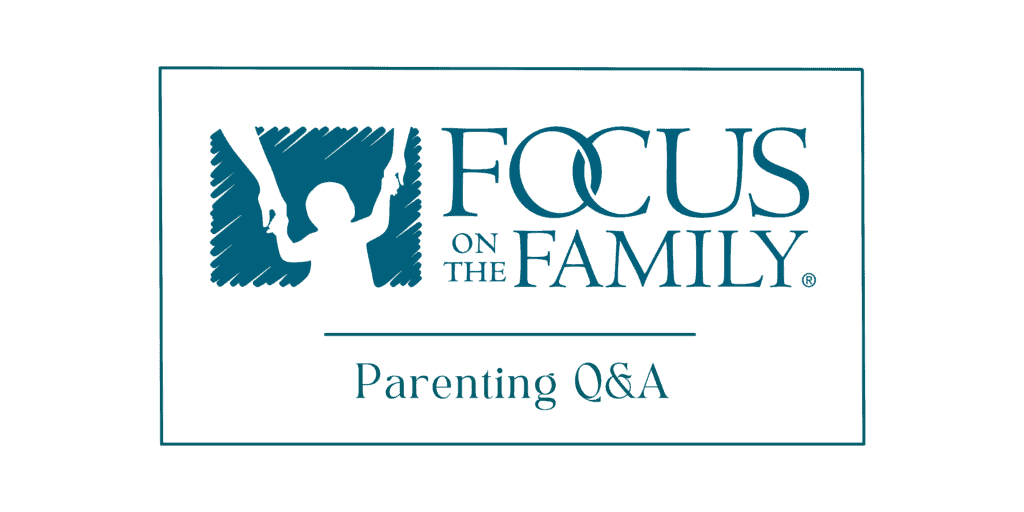It’s very hard to answer this question without knowing a lot more about you, your daughter, her husband, and the entire situation. Obviously, in cases where there is abuse, severe neglect, or an immediate threat to children, appropriate action should be taken to ensure their safety and well-being, even to the point of reporting concerns to the proper authorities. In the absence of such a situation, however, our initial reaction would be to point out that clear boundaries are an important part of healthy in-law relationships. This is implied in the biblical principle of “leaving and cleaving” (Genesis 2:24). We understand your concern for your daughter and your grandkids, but we also think you need to realize that what you’re looking at in this instance is an independent family unit — a family unit for which you bear no immediate responsibility. That may be hard to swallow, given the strength of your personal emotions and the complexity of the family ties involved, but it’s still a crucial piece of the puzzle.
Our next thought flows directly from this first observation, and it takes the form of a question. Exactly how does your daughter feel about all this? Does she regret her choice of a mate? Has she been asking you to do the maintenance on the family car? Or is the problem essentially a matter of your observations and your assessment of the circumstances? In other words, is there a real problem here, or do the dangers, inconveniences, and improprieties of her marital arrangement exist primarily in your mind?
Here’s what we’re driving at. If your daughter and your son-in-law are happy together and appear to have a relatively successful marriage, it might be best for you to adopt a hands-off policy — leaky crankcase notwithstanding. After all, there are more important things than the condition of their car. It should be obvious that the health of their relationship comes first. You certainly don’t want to drive an unnecessary wedge between them by shaming the husband in front of his wife.
On the other hand, if there is a serious marital conflict brewing here, that’s a different story. If your daughter sees the difficulty and if she’s reaching out to you for help and guidance, you may need to think about taking some kind of action. But you should do so with caution, bearing in mind that grown-up married people have to take responsibility for making their own decisions and ordering their own lifestyle. Here’s what we would suggest.
Begin by recognizing that there must be both acceptance and accountability in all of your dealings with struggling adult children. You can’t reject your son-in-law simply because his character, personality, and attitude toward household chores and automotive maintenance aren’t particularly to your liking. To a degree you have to make allowances for his personal flaws and foibles. But a line is crossed when his behavior becomes oppressive to your daughter or if it has the effect of driving her to depend upon you for practical assistance and support. At that point, someone needs to confront him with the implications of his actions and make it clear that things can’t be allowed to continue in this vein.
This doesn’t have to take the shape of a personal showdown between the two of you. It would actually be preferable to arrange something more along the lines of a formal intervention involving one or two other concerned family members. You might also want to include an interested third party, such as a pastor or marriage therapist.
To the extent that it depends on you, try to avoid making accusations during the course of this session. It would probably be a good idea to begin by apologizing for overstepping your boundaries and taking inappropriate actions in the past. After that, we’d advise you to ask some strategic questions aimed at both husband and wife. Don’t tell them what to do. Instead, find out how they feel about the situation and how they think it should be handled. Make up your mind that you will no longer act as an enabler. Establish clear limits and boundaries — for example, you might say, “If your car breaks down on the highway, I’ll be happy to come and pick you up, but I can’t do your oil changes anymore.” Arrange circumstances so that your son-in-law can learn from the real-life consequences of his actions. Then encourage them to think about the option of getting some intensive marital counseling.
Focus on the Family’s Counseling staff would be happy to speak with you over the phone. They can also direct you to qualified Christian therapists in your area who specialize in this kind of work.
Resources
If a title is currently unavailable through Focus on the Family, we encourage you to use another retailer.
In-Laws, Outlaws, and the Functional Family: A Real-World Guide to Resolving Today’s Family Issues
Setting Boundaries with Your Adult Children: Six Steps to Hope and Healing for Struggling Parents
Establishing Healthy Boundaries with Your In-Laws
Articles
In-Law Relationships











